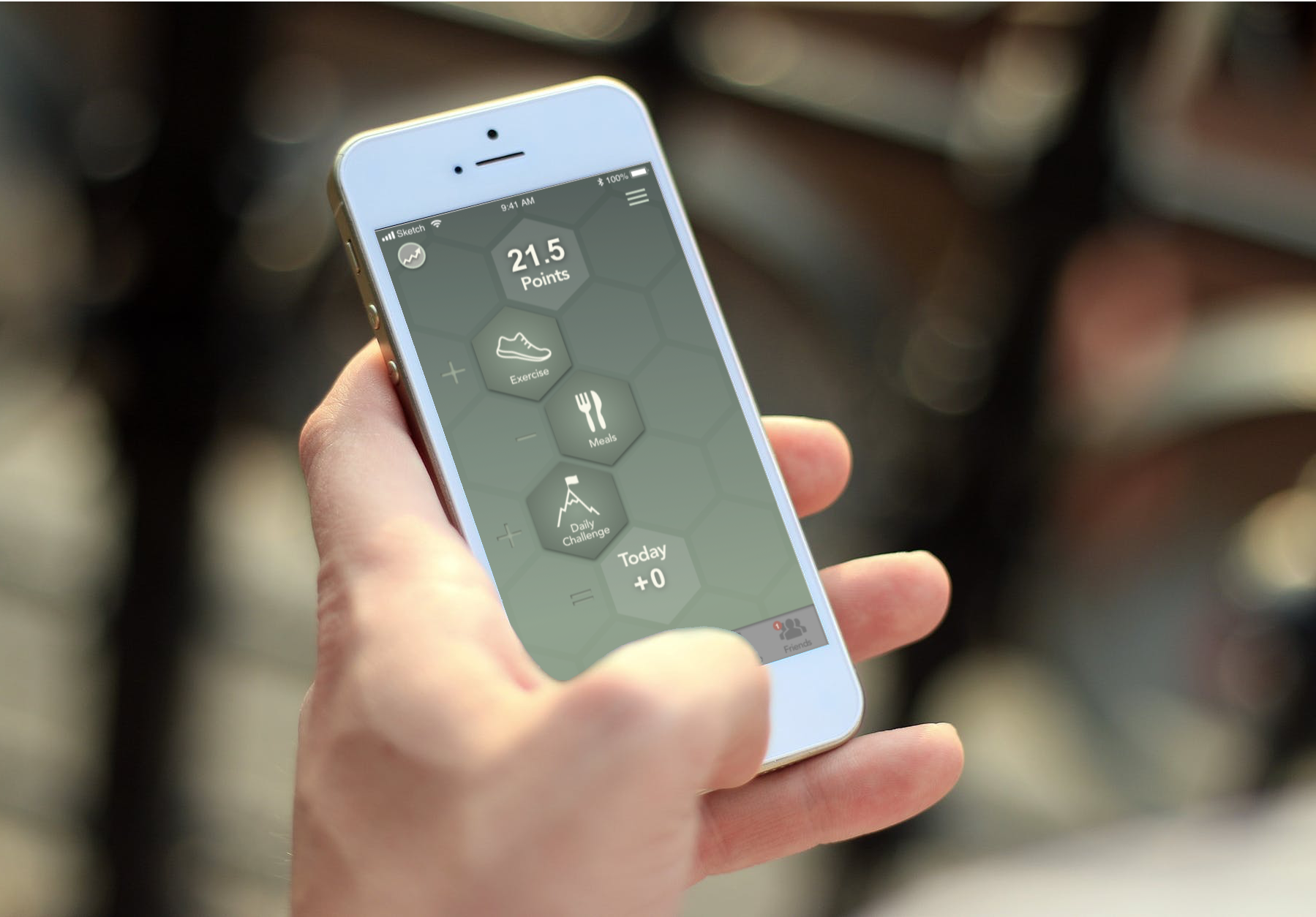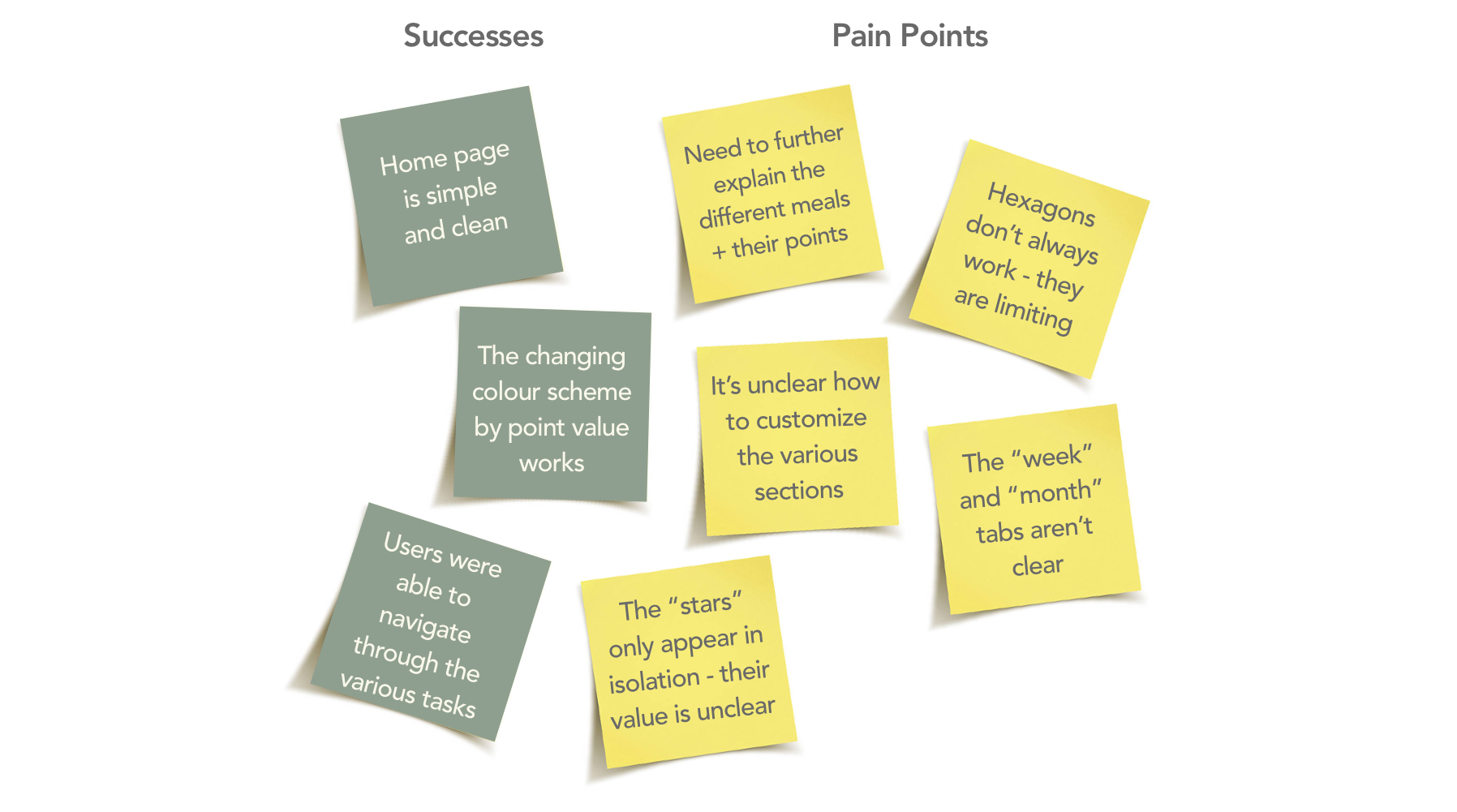100 Points to Your Perfect Body
The Challenge:
Create a unique fitness program that will be fun, simple, and addictive.
With the emergence of the smartphone, people no longer have to go to gyms or fitness centres to access a motivating fitness plan. In an oversaturated market, 100 Points must differentiate itself by offering something unique: an all-encompassing lifestyle program. Rather than a simple calorie counting or run tracking app, I want to create a program that gamifies your entire life, motivating users to establish customized, healthy, and realistic daily routines that will ultimately help anyone who uses 100 Points reach their fitness goals.
The Concept:
A decade ago, I began gamifying my life in hopes of improving my health before ever knowing the term gamification. I was tracking every meal I ate, every kilometre run, and every good habit developed through countless spreadsheets. I would reward myself with points for exercising, but would lose points every time I ate poorly. The goal: reach 100 points.
Through the initial 100 Points program, I was successful in reaching my fitness goals by establishing a motivating and attainable daily routine. By emphasizing friendly competition with both your friends and yourself, immediate and lasting results are at your fingertips.
Research:
Although I was happy with the initial thinking behind 100 Points, with over 250,000 health and fitness apps available, extensive research would have to be done to discover what makes the few successful programs sticky and why the countless others fail. To evolve the 100 Points concept into a robust, yet simple system that would actually attract users, I analyzed the competition, identified user pain points, and developed 3 personas before creating wireframes and eventual high-fidelity mockups and prototypes.
Competitive Analysis
Most fitness apps focus in on one element - the number of kilometres ran, the calories you ate that day, the number of steps you took, or how many days in a row you’ve eaten an apple. While these are beneficial to your health, they fail to piece it all together into one cohesive metric for success. By putting every aspect of your life (from diet to exercise, from personal goals to breaking bad habits) into one centralized app with a consistent scoring metric, true progress can be tracked with ease.
User Pain Points
I interviewed six different people, including those who already use fitness apps and those who don’t, to better understand the frustrations from current users and to determine what the main deterring factors for ever using a fitness app are.
Personas
After having six 1:1 interviews, 3 personas were created to represent the main goals and frustrations users were having with fitness apps.
Primary Persona - The Competitor
Secondary Persona - The Target Seeker
Kyle, 30 years old and recently engaged, represents the secondary persona: the target seeker. Of the six interviewees, 2 fell into the category of those who were trying to lose weight for a specific date. Whether it be a wedding, vacation, or just getting ready for beach season, 100 Points helps users stick to a pace that will get them to their fitness target on time.
Tertiary Persona - The Diet Failure
Molly, 42 years old and too busy to regularly go to the gym, has always been known as the diet failure. She tries every fad diet and the latest weight-loss miracle exercise equipment, but can never stay motivated after the first few weeks. Something in her busy life gets in the way to derail her daily routine, and once Molly is off her routine, there’s no getting back to it. 100 Points is designed to motivate users to keep pushing every single day. It’s not about reaching your fitness goals in a week, it’s about replicating small successes over and over until a healthy habit is established.
The Design Process:
User Flow
Based on my research, I created a user flow diagram to map the intended flow of users navigating through 100 Points.
Wireframes
With an understanding of the user’s flow, I began sketching low-fidelity wireframes using paper and pen.
The Outcome:
Mockups
Once the wireframes were developed, I began creating high-fidelity mockups using Sketch. I first focused on the design of the Homepage, as this would be the main touchpoint for all user activity within 100 Points.
Numerous iterations of the Homepage were created, testing styles, moods, colours, and overall flow and feel of the app.
The final UI design was aimed to motivate and calm users by utilizing a muted colour palette, simple icons, and a heavy emphasis of gamification.
Final UI Design
Exercise
The original thought process behind 100 Points, although incredibly flawed and pertaining to my own unique situation, was simple: run 5km everyday for 100 straight days and never eat a single unhealthy meal and you’ll have the perfect body you’ve always wanted. Of course this was a preposterous framework for an actual fitness program, but it led me to create an intuitive point system: earn points by exercising and lose points for poor dieting.
Every user is given the option of going with a preset point system or preferably, the power to handcraft a point system catered to her own unique strengths and weaknesses.
Meals
Experts say, 80% of healthy weight loss is a direct result of maintaining a good diet. Exercise is crucial for your overall health, but 100 Points reinforces the importance of diet. Meals are categorized as green meals (healthy, worth 0 points), yellow meals (somewhat healthy, -0.5 points), and red meals (unhealthy, -1 point). You can’t earn points by eating well - you can only lose points through diet. Users will quickly realize that eating a majority of green meals is critical in gaining points on your quest to 100.
Daily Challenge
The recipe for a successful diet app lies in motivating the user to make small positive changes, every single day. 100 Points is designed to help users maintain a healthy and realistic daily routine - the Daily Challenge. Earn +0.5 points every day you complete the personal goals you’ve set for yourself, whether they be physical challenges like pushups or steps, working on creative projects, or even breaking bad habits.
Invision Prototype
Using the high-fidelity wireframes, a prototype was built using InVision
User Testing
With a high-fidelity prototype, I asked 5 people to navigate through the app and complete basic tasks like filling out a meal log for the day, adding a new goal in the Daily Challenge, and tracking your pace from the previous month.
Lessons Learned
This project was an exciting way to take an existing idea, living in an unintuitive and ineffective medium, and elevate it into a successful and robust fitness program. In all, 6 people used the 100 Points system for a one month trial and all lost weight and improved their overall fitness. The feedback was universally positive, though there are many areas in which to improve the app and the process in which the app was designed. Too much time was spent on developing high-fidelity mockups on iterations that lacked promise. By simply spending more time on wireframes and getting feedback earlier and more frequently throughout the design process, I would have saved time in the long run. I learned that gathering user feedback and testing even the most basic of tasks is unpredictable, yet invaluable in creating successful products.














